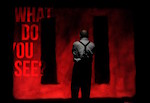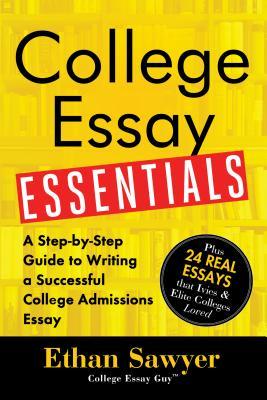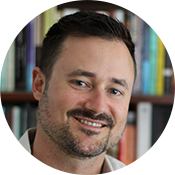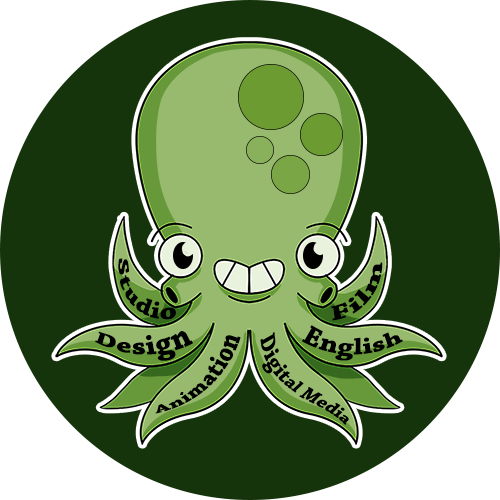English
- General Info
- Junior English 3
- Senior English 4
- Resources
- About Instructor
Instructor: Jason Greco
Email: Jason.Greco@freestyleacademy.rocks or Jason.Greco@mvla.net Voicemail: 650-940-4650 x0092
Junior Projects |
||||
| Class |
Conceptual
|
Visual Narrative
|
Documentary
|
Explorations
|
|---|---|---|---|---|
| English (1st required class) |
Poetry |
Short Story + Presentation |
Magazine Article or Book |
Lyrical Essay and Presentation |
| Digital Media (2nd required class) |
Photography, Premiere Pro, Photoshop |
HTML, CSS, Pro Tools, Audition, SFXs |
Illustrator, InDesign |
After Effects, MIDI Music Composition |
| Design (3rd elective class) |
Photography, Conceptual, Photoshop |
Illustrated Creatures & Portrait Photography |
Documentary Book |
Explore a Topic of Your Choice |
| Animation (3rd elective class) |
Phenakistoscope Wheels, FlipBooks, Zoetrope Animations, Stop Motion Animations |
Lip Syncing, Puppet Character Bios, Poses, Walk Cycles, and Mood Scenes |
Animated Documentary |
Explore a Topic of Your Choice |
| Film (3rd elective class) |
Experimental Film |
Storyboards, |
Documentary Film |
Explore a Topic of Your Choice |
Senior Projects |
||||
| Class |
Reflections
|
Narrative Perspectives
|
Various, Zenith, Showcase & Exhibition
|
|
| English (1st required class) |
Personal Essay |
World Building |
World Building, Humor |
|
| Digital Media (2nd required class) |
Mandalas with Illustrator, After Effects, Photoshop Painting |
HTML/CSS/JavaScript, More After Effects, Photoshop Compositing |
Multi-layered art with Illustrator, After Effects 3D |
Personal Stationery |
| Design (3rd elective class) |
PSAs |
Movie Posters/Book Jackets, |
||
| Animation (3rd elective class) |
3D Animation Overview, 3D Environment modeling and texturing, Digital Sculpting, 3D Character Design |
3D Animation: Keyframe Animation and Motion Capture, Action-Reaction Scene |
||
| Film (3rd elective class) |
Video Essay |
Narrative 2 Film |
||
Expected School-wide Learning Results:
21st CENTURY SKILLS
To prepare students to live, learn, and work successfully in today's knowledge-based digital society, our emphasis at Freestyle will be on developing:


- Visual Literacy - the ability to interpret, use, appreciate, and create images and video using both conventional and 21st century media in ways that advance thinking, decision making, communication, and learning.
- Technological Literacy - knowledge about what technology is, how it works, what purposes it can serve, and how it can be used efficiently and effectively to achieve specific goals.
- Creativity - the act of bringing something into existence that is genuinely new, original, and of value either personally (of significance only to the individual or organization) or culturally (adds significantly to a domain of culture as recognized by experts).
- Self Direction - the ability to set goals related to learning, plan for the achievement of those goals, independently manage time and effort, and independently assess the quality of learning and any products that result from the learning experience.
- High Productivity - the ability to produce intellectual, informational, or material products that serve authentic purposes and occur as a result of students using real-world tools to solve or communicate about real-world problems. These products include persuasive communications in any media (print, video, the Web, verbal presentation), synthesis of resources into more useable forms (databases, graphics, simulations), or refinement of questions that build upon what is known to advance one's own and others' understanding.
- Teaming and Collaboration - cooperative interaction between two or more individuals working together to solve problems, create novel products, or learn and master content.
- Social and Civic Responsibility - the ability to manage technology and govern its use in a way that promotes public good and protects society, the environment, and democratic ideals.
- Risk Taking - the willingness to make mistakes, advocate unconventional or unpopular positions, or tackle extremely challenging problems without obvious solutions, such that one's personal growth, integrity, or accomplishments are enhanced.
What Is Expected From The Student
Assessment and Grading:
Quarter grades will be determined on the basis of performance on projects and classwork.
*Please note: Only semester grades appear on transcripts.
For a breakdown of grading and late policies, see the class syllabus:
- Junior English
- Senior English
- Digital Media 1
- Digital Media 2
- Here's a link to Digital Media late and regrading policies.
- Animation 1
- Animation 2
- Design 1
- Design 2
- Film 1
- Film 2
Grade Book Update Policy:
Grades may be viewed 24/7 through individual online accounts on Canvas and/or Aeries/SIS.
Daily Assignments:
Daily assignments are determined by tasks needed to achieve project goals. Students are responsible to check assigned tasks and project goals on Canvas and work toward achieving those tasks and goals.
Attendance:
Attendance will be taken each day, each class period. Attendance will be documented if the student was present or not in a class. You have been enrolled into a Period 9 Supervised study class - which is for attendance purposes only. Note: Students may receive a failing grade "F" in a class where they accumulate 15 or more unexcused absences.
Make Up Work
Absent students are allotted the same number of absent class days to complete assignments. If a student is absent for extended periods of time, it is the student's responsibility to consult with instructor for make-up work.
Classroom Norms
- Use appropriate language, dress, and behavior.
- Be on time for our class sessions. Attendance is taken daily.
- Phone charging stations are provided in the classroom. Leave your phone in the charging station. Phones should not be used at your desk.
- Monitor your tone and expressions during discussions. Think before you respond. Make sure your words, tone, and expressions are school appropriate.
- Maintain the focus of class-time. Make comments specifically related to the purpose of the class discussion.
- Be forgiving of mistakes during classes. There will be technical glitches; be patient with classmates, and be patient with your teacher.
- Speak up when addressing the class or teacher. Allow other participants time and opportunities to contribute, and share their ideas with the group, also.
- It is important, and rewarding, for you to participate in discussions! It is just as important for you to consider the opinions of others. Strive for balance among participants.
Classroom Rules:
Because of the various expensive equipment provided for each student, no eating, drinking and chewing gum will be strictly enforced. Students not in their seats when class begins will receive a tardy. Cheating on any assignment or evaluation will not be tolerated. Any student caught cheating will be given a zero for the item and will be subject to further disciplinary action.
Help:
Email me at jason.greco@freestyleacademy.rocks.
Open Lab hours throughout the year will be posted online and announced in class. Lots of information is on the other tabs at the top of the page.
Junior English 3
|
Canvas Course and Course Information Sheet Prerequisites: None Length: 1 year Credits: 10 Units UC/CSU: Yes "b" |
Course Texts:
|
Course Description:
In this college preparatory, UC-approved English course, students will study a variety of poetry, fiction and nonfiction works aligned with their writing and media work for each Freestyle project. Storytelling and visual communication are essential elements of each unit, allowing students the freedom to choose much of the content of their own learning and pursue what they are passionate about. Over the course of the school year, students improve their skills in reading, writing, language, and speaking and listening (as described by the Common Core State Standards); throughout this process, they learn to think critically about complex texts, reflect on their own practices and growth, and express themselves clearly, creatively, and professionally. Students become better researchers, project managers, presenters, collaborators, critical thinkers, and creative problem solvers through their work in this class in conjunction with their two media classes.
English Junior Projects
Project 1 - Conceptual

For the Conceptual Project, Juniors develop their abstract thinking and communication skills to answer the question,
This project emphasizes creative risk-taking through poetry, music, art, animations, experimental film and web production, challenging students to express their opinions through a distinct personal aesthetic. Students begin developing their technical communication skills by learning a variety of modern professional equipment and applications such as DSLR cameras, Digital Audio Workstations (DAW), Wacom Cintiqs, Adobe Photoshop, Adobe Animate, Adobe Premiere Pro, Adobe Audition, Avid Pro Tools, WordPress websites, and Google Apps.

In English, you will learn multiple approaches to writing poetry through unconventional prompts, individual and group exercises, and revision workshops. Throughout this process you will also develop a command of poetic terminology by using it appropriately in spoken and written analyses of assigned poems, and by applying literary techniques to poetry of your own creation. A fundamental challenge of this project will be experimenting with different ways of representing an assigned concept or inventing an original concept through figurative thinking. You will read a variety of poems and the play Red (John Logan).
Using the thought process of a poet, you will:
- Experiment with a series of written and visual responses exploring a concept, with the intention of discovering the freshest and most original ways to express it in written and spoken poetry, sound, and visual art (such as photography, film, and animation).
- Produce a Photo Haiku and a Free Verse Poem (including an “Intention Statement” explaining in the language of the medium how your stylistic choices work to convey your intended purpose).
What's new? Everything!
Poem Examples - 2020 Haikus, 2020 Free Verse, 2019 Haikus, 2019 Free Verse, 2018 Haikus, 2017 Free Verse, 2017 Animated Poems, 2017 Photo Haikus, 2016, 2016 Photo Haikus, 2015 Photo Haikus, 2014 Photo Haikus, 2013 Photo Haikus
Project 2 - Visual Narrative

Project Map
The Visual Narrative Project asks Juniors,
Beginning with an exploration of prose fiction and the graphic novel, students practice communicating character and story arc through descriptive storytelling, narrative digital art, storyboards, films, and animations. Students deepen their technical communication skills by learning a variety of modern professional equipment and applications such as Wacom Digital Drawing Pads, lighting equipment, downshooters, Adobe Photoshop, Adobe Illustrator, Adobe Animate, Adobe Premiere Pro, Adobe After Effects, Avid Pro Tools, Propellerhead Reason, HTML/CSS, DragonFrame, and Google Apps.
In English, you will learn essential fiction writing techniques, with an emphasis on what carries a narrative visually and when and why a writer should “show, not tell.” The poetic thinking of the previous project will continue to serve as a tool for developing description, imagery, and figurative meaning. You will find inspiration and space to experiment with character and scene, plot structure, dialogue, point of view, and subtext through unconventional writing prompts and collaborative activities like “the writer’s room,” table reading, and revision workshop. You will read a variety of short stories.
Using the thought process of a storyteller, you will:
- Experiment with both individual and collaborative brainstorming, planning, drafting, and revision techniques in order to invent intriguing content, strengthen characterization, narrative arc, style, and voice, and develop an awareness of your own best practices as a story writer.
- Produce a short story or short play and an “Intention Statement” explaining in the language of the medium how your narrative and stylistic choices work to convey the intended purpose/meaning of your story.

1984 Today
In English, you will learn how narrative and the manipulation of language function in political contexts. Whereas the fundamentals of poetry and storytelling were the focus of the two previous units, this unit pushes you to think about how communication and art relate to your own social and civic responsibility (one of the eight 21st Century Skills Freestyle emphasizes) and how you can make your projects purposeful in this way.
You will read the novel 1984 (George Orwell) as well as various essays and current news articles.
Using 1984 and opposing viewpoints on an “Orwellian” or authoritarian topic, you will:
- Create a concise presentation outline and practice effective delivery (steady pacing, regular eye contact, clear voice, confident body language, and a command of relevant media aides).
- Produce a presentation which asserts your argument in a current debate about an “Orwellian” or authoritarian topic, using 1984, current news articles, your own narrative revision process, and effective visual/sound media as support.
What's new? Learn how to write a story economically in a limited amount of space, to rely on imagery and action to tell a story, to use description to show rather than tell, to develop character and draw plot from character conflict to create a compelling yet believable narrative arc.
Examples -
2022 Short Stories, 2020 Short Stories,2021 Short Stories, 2020 Short Stories, 2019 Short Stories, 2018 Short Stories, , 2016 Short Stories
Project 3 - Documentary

Project Map
For the Documentary Project, Juniors develop their documentary and communication skills to answer the question,
For the Junior Documentary Project, students will portray an intriguing person, group, place, idea, or issue, gathering primary and secondary research sources to develop a distinct perspective about their subject’s significance in the community and/or world. Students will produce documentary magazine articles or books, animationed documentaries, documentary films, documentary websites, and photogalleries. This unit emphasizes narrative-style journalism.
Project 3: Documentary Magazine Article or Book Text
In English, you will learn how the writing and research processes function as the cornerstones of effective documentary media. During this unit, you will hone your expository essay skills, prepare for and conduct personal interviews, and write ethical documentary journalism which balances exposition, narrative, and research. Using poetic techniques and a creative nonfiction approach, your writing will entertain as well as inform your audience. Required reading includes Freakonomics (Steven D. Levitt and Stephen J. Dubner) and various pieces of profile journalism, expository essays, and creative nonfiction. You will also use They Say / I Say: The Moves That Matter in Academic Writing, 3rd. Ed. as a handbook for using effective rhetorical thinking in your essay-based writing.
Using the techniques of documentary journalism, you will:
- Write a research paper which examines your subject in the context of a current conversation or debate.
- Create effective interview questions based on research and observations of your subject, and integrate primary and secondary research into a documentary magazine or book structure.
- Produce polished, publication-caliber copy for an online or printed documentary magazine article or book. MLA-style citation is required.
What's new?
- You will learn to synthesize narrative and research material, to conduct successful interviews, to improve your research skills, and to analyze documentary media.
- Organization of primary and secondary research within a conventional documentary structure (profile structure or multiple-chapter research paper structure)
- Finding/using visual metaphors to express writer’s angle on documentary subject.
- Study ethics in the context of journalism, documentary filmmaking, and creative nonfiction writing.
Previous Documentary Publications - Magazine Articles and Books
Project 4 - Explorations
For the Explorations Project, all Junior Freestyle students will explore his/her own passion and improve upon a particular skill set that addresses 21st Century Skills. Ultimately, each student will share his/her exploration with classmates as their Semester 2 Final. Students will have production time in all classes to complete this project.
Details:
- All productions must ultimately become digital so that we can have a digital archive of your work to share with the world on our website.
- Topics are self-chosen but must address one of our 21st Century Skills - see below.
- Topics are self-chosen but must be related to your Elective class (Animation / Design / Film) and approved by your Elective class teacher. Elective class time will be solely dedicated for working on your Explorations Project - here are the details.
- In English, you will learn to write a lyrical essay by synthesizing poetry, narrative, and research.
- In Digital Media, you will produce Experimental Music and producing your Explorations Website.
Experimental Music Archives from 2008
Archives Websites from 2022 | 2021 |2020 | 2019 | 2018 | 2017 | 2016
Archives infographics from 2020 | 2019 | 2018 | 2017 | 2016
- During Semester 2 Finals, we will all share and celebrate your newly learned skill and learn more about you and your passion(s). Each student will, at the very least, share his/her infographic and final production(s) to an audience of teachers and classmates. All students will create a presentation to use for the celebration and to also document the Explorations Project.
Archived celebration presentations/media from
- 2022 Celebration Presentations and Media
- 2020 Celebration Presentations
- 2020 Celebration PDFs
- 2019 Celebration Presentations
- 2019 Celebration PDFs
- 2018 Celebration PDFs
- 2017 Celebration PDFs
- 2016 Celebration PDFs
Senior English 4
|
Canvas Course and Course Information Sheet Prerequisites: None Length: 1 year Credits: 10 Units UC/CSU: Yes "b" Course Texts:
|
Course Description:
In this college preparatory, UC-approved English course, students will examine their identities and purposes as writers through the exploration of multiple nonfiction genres as well as poetry, fiction, and audio and visual media. Due to the unique, project-based organization of the Freestyle program, English classwork aligns with the work students do in their media classes. Storytelling and visual communication are essential elements of each project, allowing students the freedom to choose the content of their own learning and pursue what they are passionate about. Over the course of the school year, students improve their skills in reading, writing, language, and speaking and listening (as described by the Common Core State Standards); throughout this process, they learn to think critically about complex texts, reflect on their own practices and growth, and express themselves clearly, creatively, and professionally. Students become better researchers, project managers, presenters, collaborators, critical thinkers, and creative problem solvers through their work in this class in conjunction with their two media classes.
English Senior Projects
Project 5 - Reflection

Project Map
The Reflections Project challenges Seniors to explore a question that is at once simple and deeply complex:
Experimenting with personal as well as lyrical essay forms, students develop insights about their experiences and identities before translating those ideas visually in an HDR photography diptychs, video essays, websites, and short animations. Students deepen their technical communication skills by learning a variety of modern professional equipment and applications such as Adobe Photoshop, Illustrator, After Effects, Premiere Pro, Avid Pro Tools, Autodesk Maya, Propellerhead Reason, HTML/CSS/jQuery, and Google Apps.

The outcomes of this unit are two authentic pieces of personal writing: a “This I Believe” essay and a college personal statement. By reading, listening to, analyzing, and evaluating selected texts, students will learn to think critically about content and craft while considering the purpose and audience for each essay. Through unique brainstorming and collaborative exercises, students will develop insights into their experiences, beliefs, and values and use the writing process to develop rich material for online publication and potential use in their college applications.
What’s new?
- Learn what makes personal writing lively and authentic rather than cliche and dull.
- As a bonus for those of you applying to college: Gain insight into your audience(s) of college admissions readers and learn how to appeal to them!
Project 6 - Narrative Perspectives

Project Map
The Narrative Perspectives Project asks Seniors,
By exploring various narrative points of view and experimenting with dialogue in their story writing, students develop more advanced storytelling techniques and ideas they apply in the creation of book jacket designs, screenplays, films, animations, trailers, and websites. During this project, Seniors also experiment using photography to explore dreamlike narratives in a unit on Surrealism. Students deepen their technical communication skills by learning a variety of modern professional equipment and applications such as studio strobe photography, Adobe Photoshop, Adobe Illustrator, Adobe InDesign, Adobe Dreamweaver, Adobe Premiere Pro, Adobe After Effects, Avid Pro Tools, Propellerhead Reason, Dragonframe, Autodesk Maya, HTML/CSS/jQuery, and Google Apps.
Taking inspiration from our studies of Butler’s Parable of the Sower, you will research a social, cultural, political, economic, technological, or environmental issue that will influence your story’s main character, world, and central conflict. This real-world context will help you develop a more focused and persuasive story for your desired audience. Your authority as a storyteller will also come from additional research informing the kind of world your characters inhabit. Ultimately, you will communicate your vision to your creative peers in a pitch presentation with an opportunity for collaborative feedback.
Project 7 - Podcasting and Humor
Project 7a - Podcasting
In English, you will learn the various podcast formats that are popular today (including solo, interview, multi-host show, and audio magazine), the process of making a podcast, and how and why podcasting is changing as a communication medium and industry. Reading selections for this unit include current informational texts about podcast development and consumption patterns, current news articles, and podcast transcripts. Representative listening selections: Radiolab, Welcome to Nightvale, S-Town, Revisionist History, Freakonomics Radio...
Using your knowledge of podcasting formats and techniques, you will:
- Curate a collection of podcasts of personal interest and analyze models for your own podcast.
- Research a topic of your choice for your podcast.
- Produce a short podcast which will be played in class.
Previous Podcast Productions:
Project 7b - Humor
In English, you will learn how verbal, written, and visual comedic techniques work to entertain, to sell products, and to deliver a critical point about a topical issue. You will study humor across multiple mediums, including literary classics, sketch comedy, standup, print advertisements, television commercials, political cartoons, speeches, and songs. Through collaborative comedic processes such as improv and the writer’s room, you will develop ideas for your own humor project. The core reading selections for this unit include Slaughterhouse-Five (Kurt Vonnegut) and at least one of the following plays: The Importance of Being Earnest (Oscar Wilde), Rhinoceros (Eugene Ionesco).
Using comedic and persuasive techniques, you will:
- Write a comparative analysis of two comedic influences for your project
- Produce an original comedic work of your choice and deliver it to the class via recorded or live performance.
Previous Humor Productions:
Project 8 - Portfolio Showcase
The purpose of this final Showcase Project is for Senior students to celebrate and demonstrate their growth at Freestyle by presenting information, findings, and supporting evidence to convey a clear and distinct perspective as a digital artist
Using the professional vocabulary of the mediums, students will communicate a line of reasoning by creating a Showcase Website
- Strategic use of digital media - two Freestyle works (optional 1 non-Freestyle work) to feature the development of the artistic process from conception to completion
- Justify effective choices for meaning or style or design
- Demonstrate growth/discovery/development of passion, skills, talent, potential
In English, you will:
- Compose and record (audio only) a reflection of your Zenith project in the context of a larger reflection about your overall growth and best work throughout your Freestyle career.
Presentation logistics
- Presentations will occur simultaneously in each of the 5 classrooms at Freestyle grouped according to content (Film content in Film room, Design content in the Design room, etc.)
- Each student will be assigned presentation time based on content so that we can provide the appropriate professional panelists for your topic.
- Each student must invite 1 person to be part of the panel and each student can invite any family and friends to be part of the audience for the presentation.
- Tuesday May 25, 2021 - 1st presentation starts at 6 PM
- Wednesday May 26, 2021 - 1st presentation starts at 6 PM
- Thursday May 27, 2021 - 1st presentation starts at 6 PM
- Junior English Syllabus
- Senior English Syllabus
- Purdue OWL (Online Writing Lab) / MLA Formatting & Style Guide https://goo.gl/TYRqw4
- Gale Databases https://goo.gl/tGXJaU
- JSTOR Database https://www.jstor.org
- Poetry Foundation: https://www.poetryfoundation.org/
- Poetry Out Loud https://www.poetryoutloud.org
- Motion Poems https://www.motionpoems.org
- This American Life https://www.thisamericanlife.org
- The Stanford Storytelling Project https://goo.gl/haXVFc
- The Moth: True Stories Told Live https://themoth.org
- Ms. Katz - Materials for College Apps https://goo.gl/QMIzb9
Jason Greco
English Teacher

Jason Greco
Email: Jason.Greco@freestyleacademy.rocks or Jason.Greco@mvla.net Voicemail: 650-940-4650 x0092
Jason Greco is a graduate of Los Altos High School, UC Santa Cruz (B.A., Literature), and Cal Poly (M.A., English). His professional path includes tutoring in university writing labs, instructing freshman composition classes, co-producing film festivals with students, scoring Lit. & Comp. essays as an AP Reader, and teaching nearly every level of high school English. A fan of literature and film since his late teens, Mr. Greco finds himself at home among his fellow creatives at Freestyle. When he’s not writing his next short story or reading his lit mags, you can find Mr. G. at Bay Area sporting events, camping on the Central Coast, exploring New England, or fishing in southeastern Alaska.
